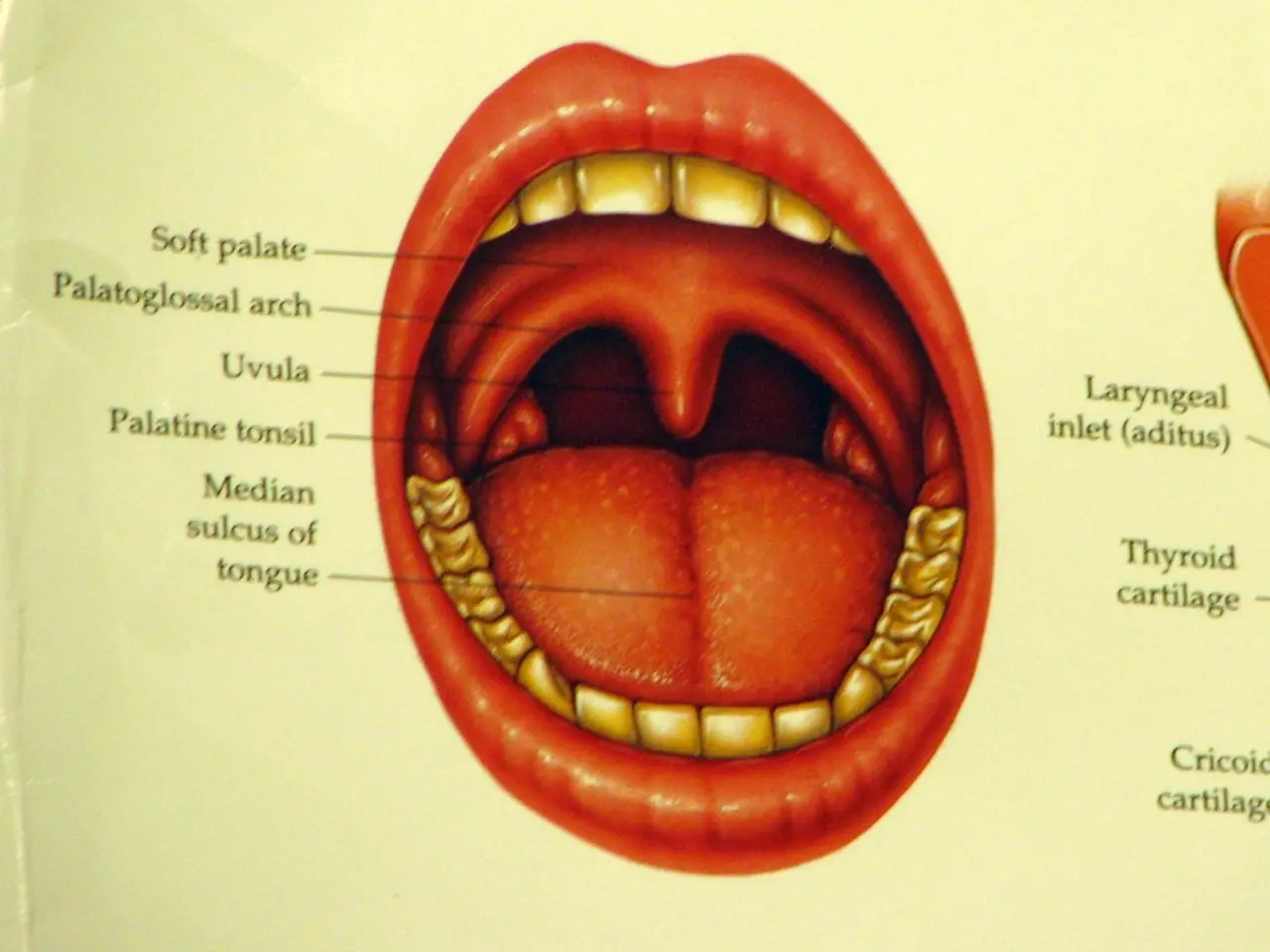Uncovering the Mysteries of Lingua Nigra: An Examination of This Language
Black Hairy Tongue: Understanding and Managing Lingua Nigra
Lingua Nigra, also known as lingua villosa, is a benign condition that causes the tongue to appear black and hairy. This condition is relatively common and can be easily managed with proper care and attention.
The primary symptom of lingua nigra is the noticeable discoloration of the tongue, which can range from black to brown. Other symptoms may include mild discomfort or a sensation of fullness on the tongue, bad breath, altered taste sensation, and dry mouth.
Lingua nigra occurs when the filiform papillae, tiny projections on the tongue’s surface, become elongated and discolored. This can be due to several factors, including poor oral hygiene, smoking or tobacco use, excessive alcohol or coffee consumption, medications, medical conditions, and dehydration.
Regular dental visits, good oral hygiene practices, and a healthy lifestyle are key components in managing the health of your tongue. Maintaining a balanced diet, limiting certain foods, avoiding mouth breathing, staying informed, and understanding the causes and symptoms of lingua nigra are all important preventative measures.
Specifically, poor oral hygiene is a key factor because it allows keratin (the protein forming the tongue's outer layer) to build up excessively, leading to the characteristic appearance of lingua nigra. Smoking and certain foods and drinks contribute pigments and irritation that worsen the condition. Eliminating these predisposing factors along with gentle tongue brushing or scraping generally helps in treating and preventing lingua nigra.
Home remedies for lingua nigra include maintaining good oral hygiene, staying hydrated, incorporating probiotics, using baking soda, and avoiding tobacco and alcohol. Improving oral hygiene is an effective way to manage lingua nigra. Tips include brushing the tongue gently, using an antimicrobial mouthwash, and maintaining regular dental check-ups.
In most cases, lingua nigra is harmless and can be easily managed with proper care. However, if symptoms do not improve with improved oral hygiene and dietary changes, it's important to seek professional help from a dentist or doctor. Medical treatments may be recommended for persistent or severe cases of lingua nigra. These can include topical medications and prescription mouth rinses.
The term "lingua nigra" is derived from Latin, where "lingua" means tongue and "nigra" means black. Understanding the causes and symptoms of lingua nigra is essential for effective management and prevention. If you suspect you have lingua nigra, consulting a healthcare professional can provide clarity and guidance.
The management of lingua nigra often involves improving health-and-wellness practices, such as maintaining good oral hygiene and eliminating factors like smoking and excess consumption of certain foods and drinks that can worsen this medical-condition, which is a benign, black discoloration of the tongue caused by the buildup of keratin. Regular health check-ups with a dentist or doctor can provide further guidance and offer medical-treatments for persistent or severe cases.




